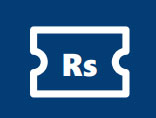Personality Of A Tendering Fraudster
Personality Of A Tendering Fraudster
Greed or need
In simple terms, motivation is based on either greed or need. Many people are faced with the opportunity to commit fraud, and only a minority of the greedy and needy do so.
Personality and temperament
Personality and temperament including how frightened people are about the consequences of talking risks play a role.
Taste for fast life
Some people with good objective opportunities fall into bad company and develop tastes for fast life. This tempts them to fraud. Others are tempted only when faced with ruin anyway.
Tight Spot
Many people obey the law because they believe in It and/or they are caught. However, if the prospective fraudster is part of a subculture of professional criminals, businesspeople who consider it acceptable, for example, to deceive government agencies or even other businesses ‘when you are in a tight spot’, then the inhibiting effect of publicity is reduced, perhaps to almost nothing. The role of this rationalization varies with the person’s commitment to respectability.
Different types of fraudster
Fraudsters usually fall into one of three categories:
Pre-planned fraudster
Who start out from the beginning intending to commit fraud. (These can be short-term players, or can be longer-term, who execute complex laundering schemes.
Intermediate fraudster
Who start off honest but turn to fraud when times get hard or when life-events such as a divorce, the need to pay care, for a family member, irritation at being passed over for promotion, or nagging from family change the normal mode.
Slippery-slope Fraudster
Who simply carry trading even when, objectively, they are not in a position to pay their debts. This can apply to ordinary traders or to major businesspeople.







